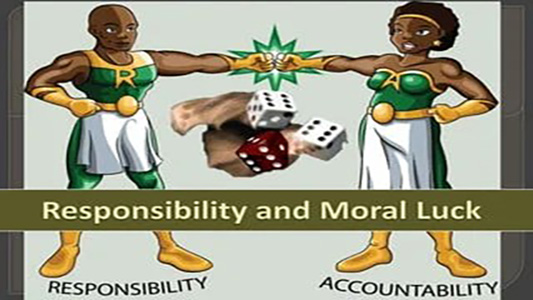The recent post on anti-bullying got me thinking about the irrational way we humans tend to assign people responsibility when they do something bad or careless. Here’s the meme again:
The boy you punched in the hall today. Committed suicide a few minutes ago. That girl you called a slut in class today. She’s a virgin. The boy you called lame. He has to work every night to support his family. That girl you pushed down the other day. She’s already being abused at home. That girl you called fat. She’s starving herself. The old man you made fun of cause of the ugly scars. He fought for our country. The boy you made fun of for crying. His mother is dying. You think you know them. Guess what? You don’t! Re-post if you are against bullying. Reblog this with if you have a heart.
Now, the most important bits about what’s wrong with this are in the original post. But now I’m interested in the first example: the boy you punched who ends up committing suicide. In the original post, I classified this as one of the very few unproblematic things about the above meme. I lied to make things more readable — there is a problem there.
If you imagine the scenario being reported in the news, people are likely to get worked up about the bully’s responsibility in the victim’s suicide. He/she might be called a murderer or even charged with something akin to murder (as opposed to assault/harassment). The funny thing about our brains is that we can’t muster anything like the same level of outrage at a bully who beat up a classmate who then didn’t go on to have any significant problems. And yet, I don’t see any reason that the action is significantly different.
If you’re unconvinced, imagine that I (Michael) have an identical twin Damien. We’ve been raised together and are both bullies to the same extent. We go to school with another pair of identical twins: Frank and Steve. On the same day, I beat up Frank and Damien beats up Steve. At this point, what is the moral difference between what we did? If we then add the extra fact that Steve happened to be suicidal and Damien’s beating (in this case) pushed him over the edge, why should that affect our judgement of Damien? In this case, we’re both equally malicious, Damien just happened to be “morally unlucky” in a completely random way. (This of course assumes that the vast majority of people aren’t suicidal, that Damien didn’t know that Frank was suicidal and so on.)
This is particularly relevant to the real-life cases of (say) drink driving. When we hear of a drunk driver who has turned a young boy/girl into a quadraplegic, we think they are a monster. When we or people we know drink and drive, we don’t give that a billionth of the moral weight. Once again, the difference is plain luck. It’s not like you can say that the driver who actually ran someone over was MORE stupid or reckless than me. How can you if everything up until the last few seconds was exactly the same?
The idea of moral luck is an interesting topic in ethics that’s worth reading about (eg. see this entry in the Stanford Encyclopedia of Philosophy I think two things play an important part in why our reactions to the cases are so different. The first is hindsight bias: once we know that someone was actually run over, we can’t unlearn that. We cannot rid ourselves of the feeling that “the driver should have known all along that this would obviously happen”. When the driver is lucky, we don’t get that feeling.
The second is (I believe) the just world fallacy. We know that Damien was (in addition to being a bullying asshole) unlucky enough to have punched someone who was suicidal. We have a very strong tendency to implicitly believe that things happen for a reason and people get what they deserve, even if we explicitly reject this. So we find it hard to accept on an emotional level that something like this could have happened to Damien if he wasn’t more evil than me (who “only” punched a non-suicidal person). Ergo Damien was more malicious than me and more blameworthy.
I hope to have made the case for why we should try to minimise this kind of thinking. But minimising this need not mean we must go soft on bad behaviour. It might be the reverse. For bullying, this might mean this: if you bully someone you’re accepting a substantial risk that the person will be harmed through depression, suicide and so on. Even if you’re lucky enough to have escaped this, because you took this risk, you are just as much of an asshole as Damien. If you drink and drive, even if you don’t hit anyone, we should think of you exactly how we think of someone who did — just slightly luckier.





0 Comments